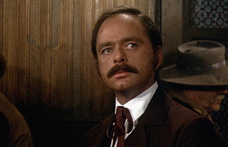Constitutional confusion
Only a constitutional amendment can put an end to the legal confusion around the referendum initiatives - as has been proven once again by the battles surrounding the institution of a referendum to confirm a law.
The hearings on the lawyer Krisztina Morvai's referendum questions are continuing in the Constitutional Court (AB) after the National Electoral Commission (OVB) rejected all five variants of the question she had submitted. Last year, appealing OVB rulings to the Constitutional Court became something of a popular sport, so it was no surprise that the same should happen in this instance.
Whatever the legal niceties, Morvai's opinion is very straightforward. Referendums that confirm laws are no different from any other, she claims. It is true that the law has little to say about this type of referendum. The constitution and the law on referendums each devote a single sentence to the matter, but neither says anything about the proper procedure. They simply state that the president may only sign a law that is subject to a referendum if the referendum has confirmed it.
This view has its flaws, however. For one thing, a law that has been made subject to a referendum ties the president's hands, but there is no such obligation before the referendum takes place. So the parliamentary majority could vote once again to pass a law that the president has referred back to parliament before the Constitutional Court authorises Morvai to start collecting signatures in support of her referendum question. By the time the necessary 200,000 signatures have been collected, the law would already be in place, since the president cannot veto a law which has been twice passed by parliament.
This isn't a flawless solution: in 1997, the Constitutional Court ruled that participants in a referendum procedure had to cooperate. Parliament could therefore be found guilty of abusing its rights if it so openly tried to pre-empt a referendum.
Parliamentary rules also have something to say about referendums confirming laws. But this is not a law, but a parliamentary resolution, which imposes no obligations on citizens. According to a resolution that has been in force since 1997, a referendum of this nature can only be asked for in writing and can only be requested in advance of the final vote. Parliament must vote on holding the referendum at the session following the final vote, and the text of the law cannot be sent to the president unless the referendum confirms the law. Morvai believes that this parliamentary resolution can be ignored - she argues that the general rules on holding referendums should be adhered to. This is why she sent her proposed question to the OVB. Afterwards, she wrote to the president asking him to delay signing the law.
Solyom did not follow her advice. She also fell victim to 'friendly fire' when another of the Civil Lawyers' Committee's joint presidents, the retired judge Miklos Volgyesy, said that while the referendum initiative was legal, it could not have a delaying effect. In practice, this is obvious, since otherwise every new law would take months or years to come into force after being passed in parliament. Gabor Halmai, vice-president of the OVB, said that regulations in force implied that only an MP could ask for a confirmatory referendum.
To make things yet more confusing, the Constitutional Court last December accepted a referendum question on health insurance that largely covers the ground that Morvai's does. The two questions are not in competition, since Zsolt Albert's question had been passed a week before Morvai sent her e-mail to the OVB. And this is the question: are legislators bound by the question the judges accepted in December? Solyom believes not, for otherwise he would certainly have sent the text of the question to the Constitutional Court.
Fidesz is keeping its distance from these referendum wars, unlike the MDF, which would like to see a Constitutional Court ruling. The party did not even ask Parliament for a referndum, even though this would have been possible with just a third of the votes in Parliament. This is understandable in political terms. The initiative is certain to fail, so the party can carry on preparing for its referendums. And some inside Fidesz may be hoping that the president will find a new reason to refuse to sign.
GÁBOR JUHÁSZ




















